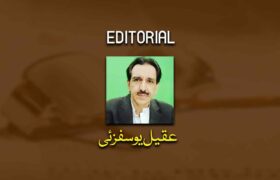Another debate is triggered in Pakistan after the Prime Minister Imran Khan has approved grants of Rs 100 million for the building of temple for Hindu Community in Islamabad.
The 4 kanals land for the site of the Shri Krishna Mandir (temple) complex, which includes a crematorium, accommodation for visitors, a community hall and a parking space, was allotted by the then PML-N government in 2017.
The move of the incumbent government has been welcomed by majority of people within the country and even the international media terming this move as a step towards strengthening interfaith harmony. The decision also projected a much needed positive image of Pakistan to the rest of the world as it is on watch list of the global community regarding minority rights after cases of forced conversions were reported in Sindh and Punjab provinces.
However, the government is also facing a huge criticism from some segments of the country particularly religious political parties terming the move against Islamic rules and Pakistan Ideology.
In a joint press conference, the religious parties announced that they were going to raise the matter in Federal Shariat Court in order to stop government from building the temple. Furthermore, they claimed that government can only repair old temples in country but they will never allow government to build a new temple on taxes of 220 million Muslims.
A local lawyer from Islamabad has also challenged the decision in Islamabad High Court (IHC). In Tuesday’s hearing, the petitioner claimed that a temple for Hindus already existed in the model village of Saidpur (a tourist site in Islamabad) and the government, instead of constructing a new temple, should renovate the existing one.
The petitioner, advocate Tanveer Akhtar, has argued that in master plan for Islamabad, there was no provision for a temple on the site. Therefore, the land allotted for the construction of the temple be withdrawn, along with the funds allocated for the project.
It is believed that Imran Khan is greatly focused on the rights of minorities as after assuming the Office of Prime Minister in August 2018, Imran Khan stated very clearly that “the rights of minorities shall be protected in Pakistan and there will be no discrimination against any minority community”. On February 26, 2020, Khan declared, “I want to warn our people that anyone in Pakistan targeting our non-Muslim citizens or their places of worship will be dealt with strictly. Our minorities are equal citizens of this country.”
The PTI government has vowed to protect the civil, social and religious rights of minorities, their places of worship, property and institutions as laid down in the Constitution of Islamic Republic of Pakistan whose section 27 states, “No citizen otherwise qualified for appointment in the service of Pakistan shall be discriminated against in respect of any such appointment on the ground only of race, religion, caste, sex, residence, or place of birth.”
And in a major step towards a religiously-inclusive Pakistan, the Imran Khan-led PTI government has set up a National Commission on Minorities, represented by members of the various minority communities. The commission is tasked with formulating proposals for development of a national policy to promote interfaith harmony in the country.
The Voice Of KP on the matter approached Abdur Rauf Yousafzai, a journalist who is covering religious extremism for the last 13 years, the jounalist commented that worship places doesn’t pose any danger to the country economy or foundation and opposing the idea of temple is actually denying freedom of religion and suppressing minorities.
It is pertinent to mention here that Article 20 of Constitution of Pakistan guarantees “freedom to profess religion and to manage religious institutions”. It reads: “Subject to law, public order and morality:- (a) every citizen shall have the right to profess, practice and propagate his religion; and (b) every religious denomination and every sect thereof shall have the right to establish, maintain and manage its religious institutions.”
While, Article 36 of the Constitution reads: “The State shall safeguard the legitimate rights and interests of minorities, including their due representation in the Federal and Provincial services.”
The religious parties should not criticize the government for such move as the rights of minorities have greatly been violated in form of force conversions, destroying their worship place etc. Furthermore, opposing the move is also against the vision of Muhammad Ali Jinnah, the founder of the nation. Any such protest or opposition will project Pakistan negatively in international world pacifying the dividends of government decision. Moreover, it will also further marginalize the minorities making their lives more difficult.




